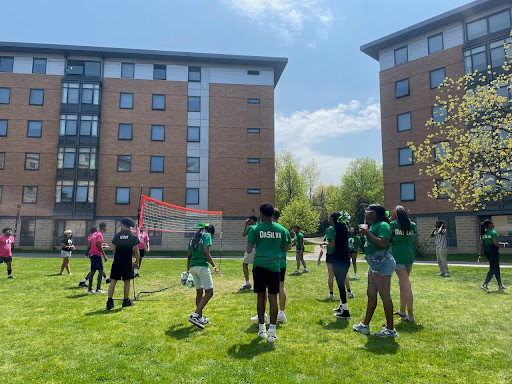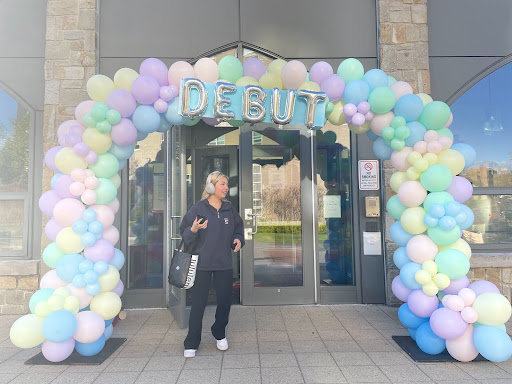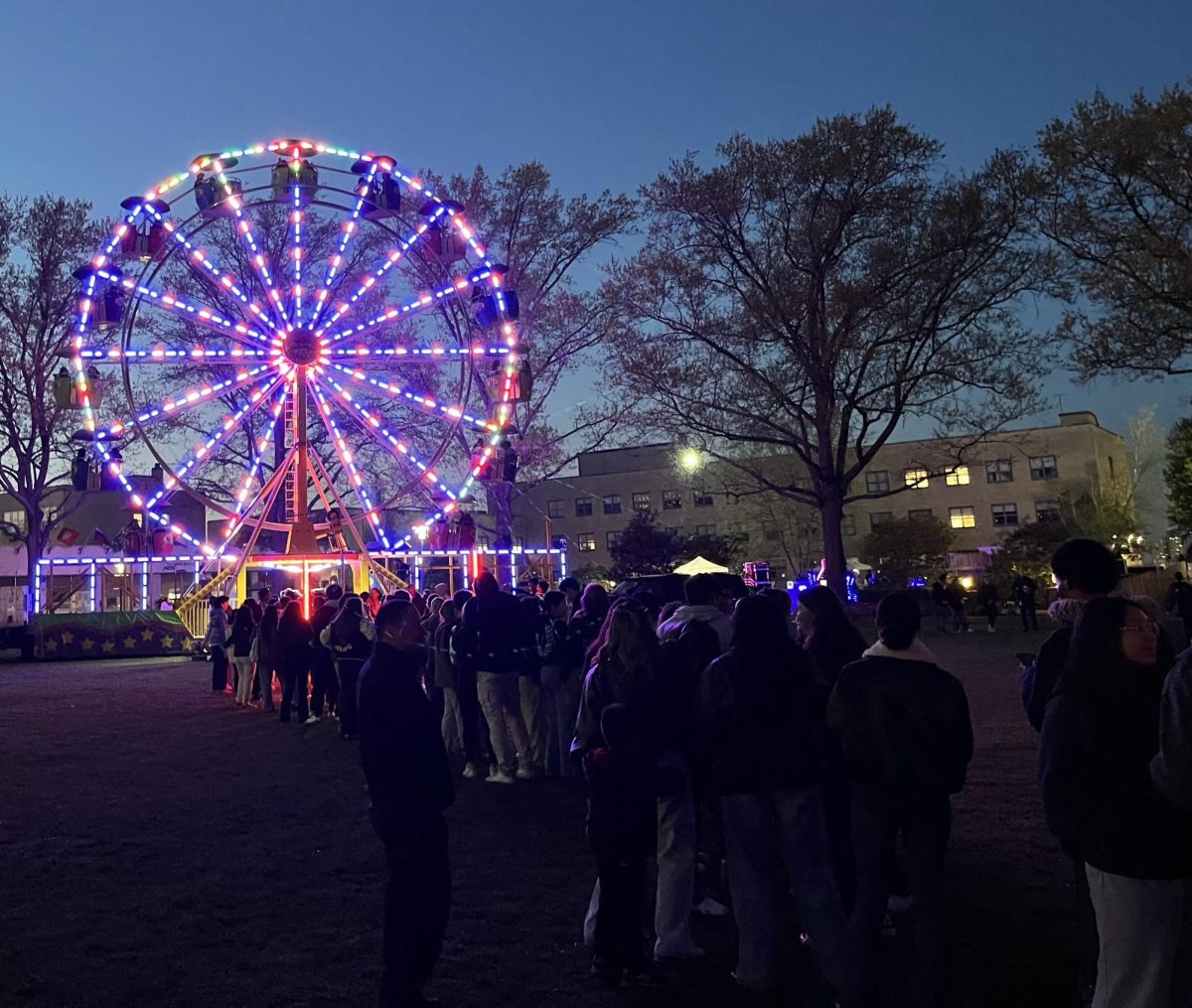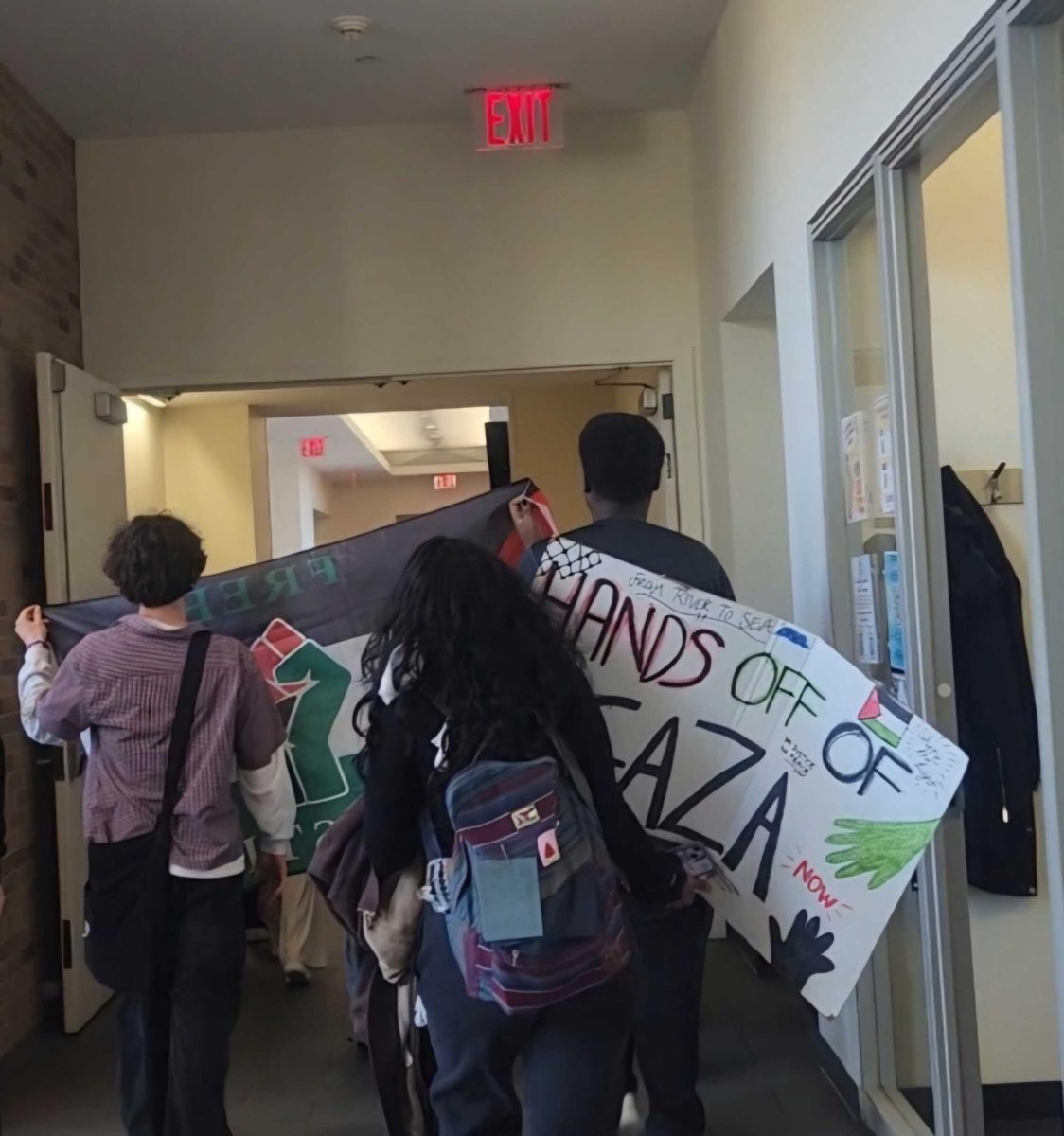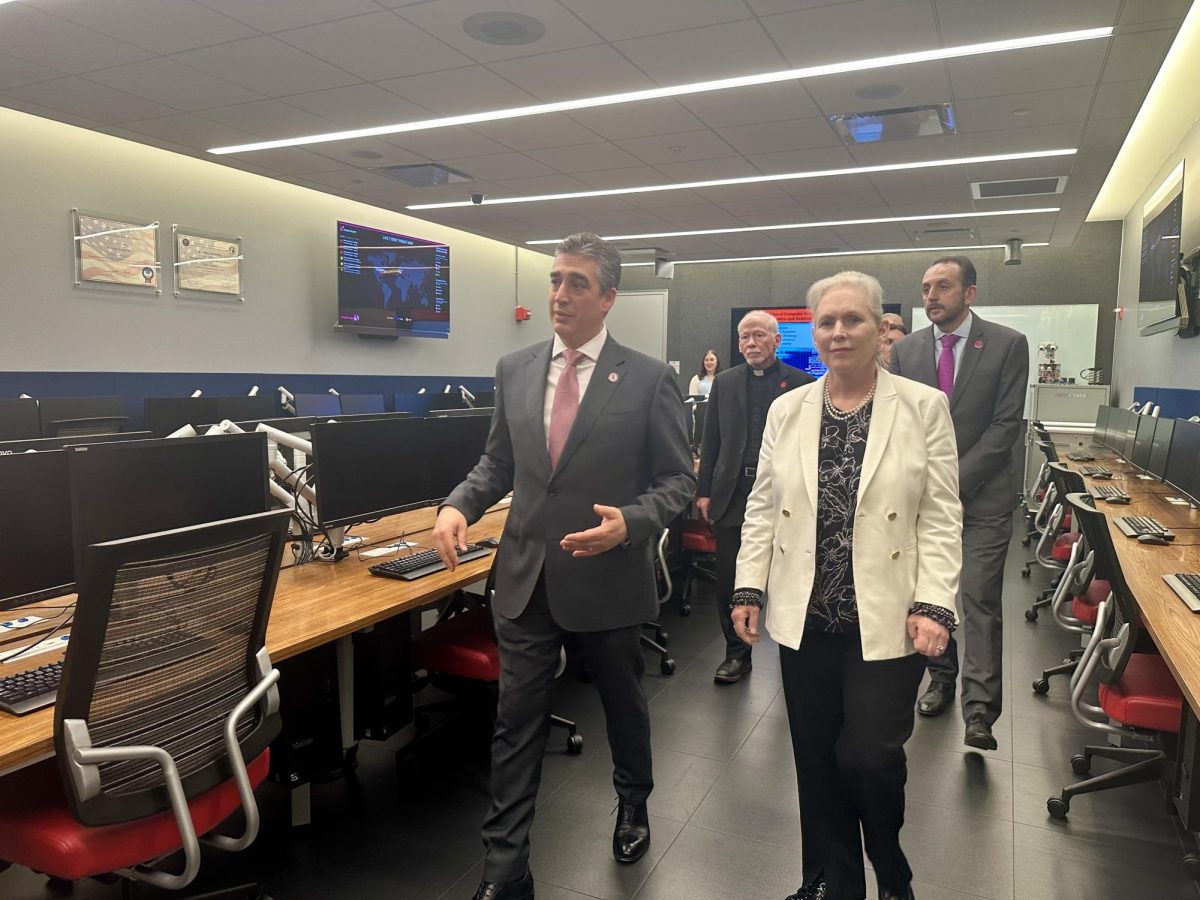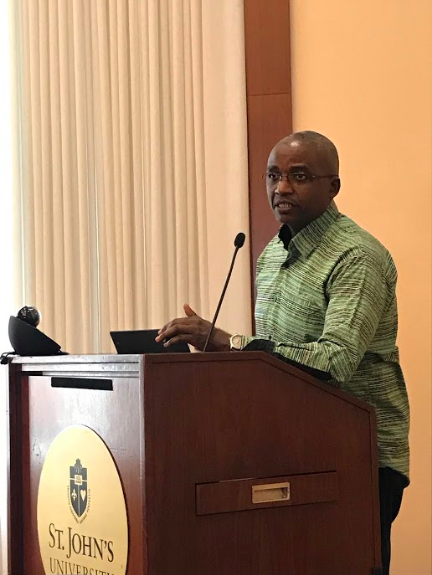
Dr. Elias Omondi Opongo gave the first of a two-part lecture series on global justice on Friday, Nov. 15 at DAC. His presentation, “Democratic Transitions in Africa: Challenge & Promise,” outlined the current challenges to burgeoning constitutionalism that has resonated across the continent since the 1990s.
A Jesuit priest and director of the Hekima Institute of Peace Studies and International Relations in Kenya, Opongo has worked with refugees from the 1994 genocide in Rwanda and published numerous books on religion and peacebuilding. Theology professor Meghan Clark, who taught with Opongo in Kenya, introduced the lecture.
Opongo said after serious economic decline in the 1980s and civil wars in the 90s, that Africa is seeing democracy increase in prominence, with nations including Uganda, Cameroon and Rwanda holding elections today. However, people still suffer throughout the continent.
Economic growth is not the issue in Africa, according to Opongo. GDP-wise, it is the fastest growing continent in the world, as several nations boast impressive yearly growth. “That’s a positive, because you were not seeing this ten years ago. Gradually these economic structures are beginning to work,” Opongo said. “But…they need to work for the majority.”
Opongo described the inaccurate picture that economic growth has painted of the continent as unemployment persists—nearly 30 percent in some countries. Opongo asked the audience to identify an image of a city skyline, one seemingly befitting any developed and prosperous city worldwide. One student guessed Seattle. Opongo revealed it was Johannesburg, South Africa.
The skyscrapers then cut to a group of exhausted men huddled along a roadside, soliciting jobs. One held a cardboard sign saying “plumber,” another “painter.” He asked which city this photo was taken in.
“It’s still Johannesburg,” Opongo said.
Perhaps the greatest threat to the people, according to Opongo, is the concentration of power in singular corrupt leaders, many elected ones holding lifetime terms, who have used their positions to control wealth and natural resources.
“These leaders have been there for 20, 25 years and tend to weaken the institution. And when people are so hopeful that change has now come, we don’t seem to experience it.”
Opongo remains hopeful, however. He sees a future where corrupt governments are held accountable and the African population can reap the benefits of the continent’s economic potential. He pointed to countries like Rwanda, where term limits for presidents are being introduced, and recognized nonviolent protests in countries like Sudan, where a three-month sit-in eventually compelled the government to step down.
“There were some shootings, some people died, but they kept going,” Opongo said. “This is one great example of nonviolent success.”
In attendance were students from Clark’s Theology and Peace class. Though he didn’t know the background, sophomore Steven Osajnak was “intrigued.” Junior Chania Chambers admittedly wasn’t sure what to expect, but was impressed by the lecture.
“I didn’t really know what was going on politically in Africa. I feel like I got really good insight on it,” Chambers said.













